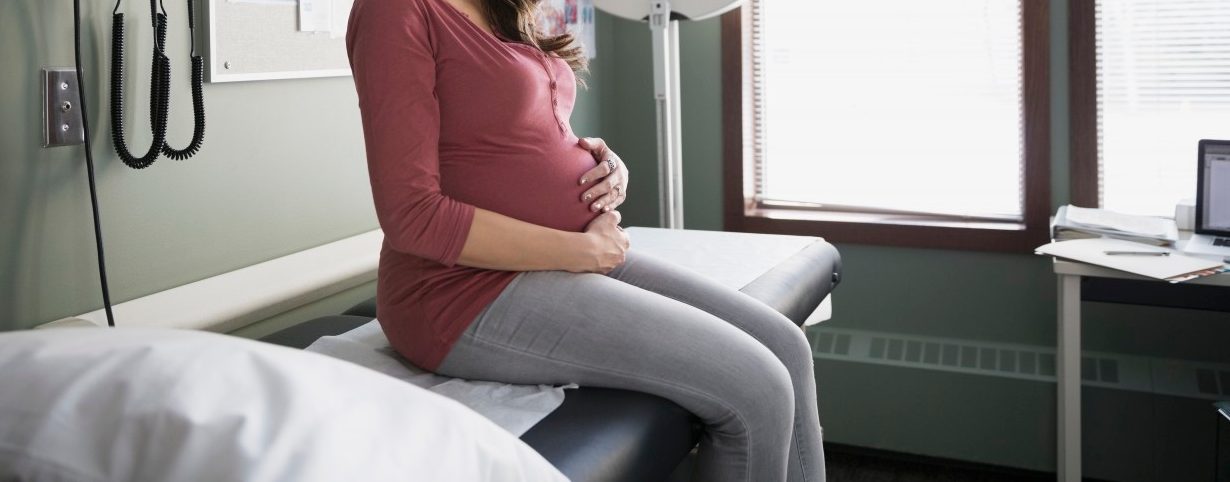Cramping in Early Pregnancy

Cramping in early pregnancy is common. Not every twinge is worrisome. Yet it's important to know the difference between normal pains and something serious.
Pregnancy is a time of great excitement and anticipation. Those 40-or-so weeks can also bring quite a bit of worry, especially you’re expecting for the first time. If you’re seeing an obstetrician for regular prenatal checkups, your doctor has likely told you about warning signs like bleeding or cramping that could signal a problem with your pregnancy.
Cramping in early pregnancy is common. Not every twinge is worth worrying or calling your doctor about. Yet it’s important to know the difference between normal pregnancy-related cramps and something more serious.
YOU MIGHT ALSO LIKE: Headaches During Pregnancy
What’s normal cramping during pregnancy?
In the first few months of your pregnancy, you might notice a mild, period-like cramping in your abdomen. It’s likely the embryo implanting in the wall of your uterus and no cause for alarm.
Later on, your expanding belly will start to pull on muscles and ligaments. You might feel an ache or pain across your belly as the connective tissues stretch. The discomfort can get more intense when you get out of bed, exercise, or cough. You can soak in a warm bath or put a heating pad (warm, not hot) on the area to relieve this type of cramp.
GI troubles are another unpleasant source of cramping during late pregnancy, as food moves more slowly through your GI tract and your growing uterus puts pressure on your stomach. Gas, bloating, constipation, and heartburn are all common complaints. Your doctor can give you tips to help ease those symptoms, like taking a stool softener or adding fiber to your diet.
Closer to your due date, you might start to feel cramping in your uterus, called Braxton-Hicks contractions. You can tell them from real labor cramps by their frequency and strength. Braxton-Hicks contractions come at irregular intervals, and they don’t get progressively stronger.
If your contractions start getting closer together and become increasingly painful, you could be in real labor. Call your doctor.
YOU MIGHT ALSO LIKE: Pregnant Drinking and Fetal Alcohol Syndrome
Serious problems that cause cramping during pregnancy
Mild cramps, aches, or stomach discomfort are likely nothing to worry about. Yet a few conditions that cause cramps are more serious, and they warrant a call to your doctor.
Miscarriage or preterm labor. As many as 20 percent of known pregnancies end in miscarriage, the loss of a baby before the 20th week. Cramps are one sign that you’re having a miscarriage, but you’ll likely notice vaginal bleeding along with the pain. When the cramps come after 20 weeks but before your 37th week, they could be preterm labor.
Ectopic pregnancy. Normally, the fertilized egg implants in the wall of your uterus. In an ectopic pregnancy, it attaches outside of your uterus. This type of pregnancy is life-threatening and needs immediate treatment.
Preeclampsia. High blood pressure during pregnancy is dangerous to both you and your baby. If you have preeclampsia, you’ll notice pain in the upper part of your abdomen. You might need to be treated with medicines to lower your blood pressure or deliver your baby early to prevent complications.
Placental abruption. Rarely, the placenta that nourishes your baby can separate from the wall of your uterus. When placental abruption happens, it can prevent your baby from getting nutrients and cause you to bleed excessively. Abdominal pain and contractions are symptoms of this dangerous condition.
Listeriosis. Cramps accompanied by a fever, diarrhea, and muscle aches could warn of listeriosis. Women are 10 times more likely to get this foodborne illness during pregnancy if they eat contaminated foods like deli meats and unpasteurized milk.
“Not only are pregnant women especially susceptible to listeriosis infections but, because the infection may spread into and across the placenta, infection also puts their fetus at significant risk,” said Jeffrey L. Ecker, MD, chief of obstetrics and gynecology at Massachusetts General Hospital.
When to call your doctor
Intense cramping or pain during pregnancy is never normal. Call your doctor right away if you have:
- Severe or sharp pain
- Pain on only one side of your body
- Pain that lasts more than a few hours
Also call if you have these symptoms along with the pain:
- Bleeding from your vagina
- Fever
- Dizziness
- Nausea or vomiting
Updated:
October 31, 2023
Reviewed By:
Janet O’Dell, RN